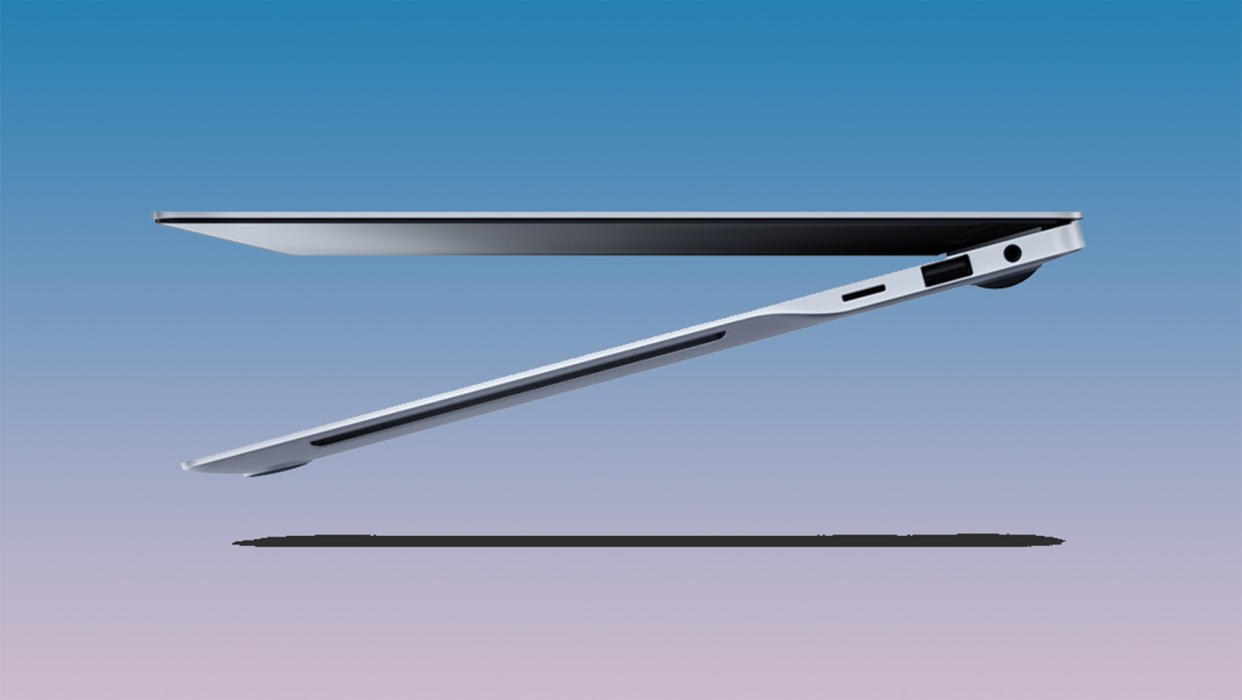Samsung has the most powerful Copilot+ laptop — here's how it performs against the MacBook Pro

The first wave of Copilot+ PCs has crashed into our testing labs this week, and our expert testers are hard at work running a blend of synthetic and real-world tests on them to gauge performance, battery life, and more before handing them off to our reviewers.
Naturally, we reviewers are eagerly awaiting these laptops in our hands, but for now, we can only press our faces up against the metaphorical glass of the testing lab and look on as new results come in. Some of the astounding benchmarks are making the wait that much harder.
We've highlighted the HP EliteBook Ultra's battery life, the Microsoft Surface Pro's performance, the Lenovo Slim 7x's performance, and the Microsoft Surface Laptop's performance, but that leaves the most powerful of them all: the Samsung Galaxy Book 4 Edge. As the lone Copilot+ PC currently available with Qualcomm's high-end Snapdragon X Elite X1E-84-100, performance is the metric that I have a close eye on, and overall it looks pretty amazing.
Our lab is still wrapping up the final tests, but the majority are done, and Samsung is putting up impressive numbers. To be clear, I don't just mean it's beating Copilot+ PCs with lesser Qualcomm Snapdragon X Elite chips; even the MacBook Pro 14 M3 and M3 Pro can't keep up with it on some tests. Let's dive into the hard numbers.
Samsung Galaxy Book 4 Edge vs. MacBook Pro 14 M3 Pro: Geekbench 6
We can lead off with the Geekbench 6 test, where the Book 4 Edge averaged an incredible 15,818 for multi-core and 2,935 for single-core. That's solidly ahead of the MacBook Pro 14 M3 Pro, which recorded scores of 14,357 and 3,154, respectively. Looking at the base M3 MacBook Pro 14, it falls distantly behind in multi-core at 11,968, while it retains the single-core advantage with 3,163.
One of our favorite recent Intel Core Ultra laptops, the Asus Zenbook 14 OLED, came in behind them at 12,615 and 2,453. Multi-core performance is more relevant for modern computing, so this is a meaningful victory for Samsung and Qualcomm despite Apple retaining that single-core advantage.
Samsung Galaxy Book 4 Edge vs. MacBook Pro 14 M3 Pro: Handbrake
Turning to our Handbrake test, which involves converting a video from 4K to 1080p using the Fast 1080p30 preset, the Galaxy Book 4 Edge acquitted itself well. It finished the conversion in 4 minutes and 59 seconds, but it wasn't quite fast enough to beat the 14 Pro's 4-minute and 26-second finish. The M3 MacBook Pro on the other hand falls behind at 5 minutes and 38 seconds, while our Intel competitor slots in last with 6 minutes and 36 seconds.
Samsung Galaxy Book 4 Edge vs. MacBook Pro 14 M3 Pro: 3D Mark Wildlife Extreme
For graphics testing, we use the synthetic 3DMark Wild Life Extreme test and this is where Apple claims a decisive victory with a score of 11,938 from the M3 Pro MacBook Pro 14 compared to 7,311 for the Galaxy Book 4 Edge. However, dropping to the base M3 MacBook Pro makes it much closer with 7,861.
This test looks at the device's ability to handle heavy performance tasks over short periods, which does not bode well for gaming on the Galaxy Book 4 Edge. This is an ARM-optimized test so the x86 Zenbook couldn't participate.
Samsung Galaxy Book 4 Edge vs. MacBook Pro 14 M3 Pro: Gaming
Our typical suite of gaming tests isn't well-suited to the Snapdragon X Elite laptops, a subject we'll be digging into further as we spend time reviewing these laptops, but we have results from Sid Meier's Civilization VI: Gathering Storm. In keeping with the previous test results, the MacBook Pro 14 M3 Pro and M3 both rocketed past the Galaxy Book 4 Edge.
Samsung mustered 24 frames per second in 1080p, while the M3 Pro and M3 MacBook Pros averaged 53 and 51 frames per second, respectively. The Intel laptop did score a win against Qualcomm here with the Asus Zenbook 14 OLED delivering 30.5 frames per second.
Bottom line
That's an early look at the performance and graphics testing on the Samsung Galaxy Book 4 Edge. We naturally have many other test results to come, including display benchmarks, battery life testing, and additional performance and graphics tests.
While the MacBook Pro 14 M3 Pro does still hold the edge in some areas, Qualcomm and Samsung are beating this third-generation Apple Silicon in any metrics, which is impressive. Notably, the Galaxy Book 4 Edge is also cheaper at $1,749. The comparable MacBook Pro 14 M3 Pro with 1TB of storage is $2,199, and the 16-inch model (matching the size of this Galaxy Book) is $2,699.
We'll need to finish our full review before we can crown an overall winner, but this early look is undoubtedly favorable for Samsung and the rest of the Copilot+ PC makers. The second half of 2024 will be an intriguing time to be in the market for a new laptop.
